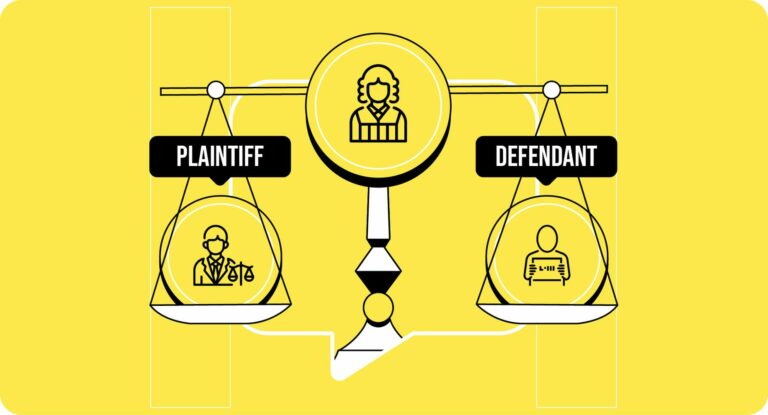Whether it’s a minor fender bender in the grocery store parking lot or a slip while taking a shower at home, accidents can occur at almost any given moment. But have you ever paused to wonder: where do most accidents happen? Such knowledge is not merely a matter of curiosity—it’s an essential piece of understanding that can help us prepare for, and potentially avoid, these unforeseen incidents.
The significance of knowing accident-prone areas allows us to navigate our daily lives with a heightened sense of caution and mindfulness. In the upcoming sections, we will delve deep into the most common locations where accidents occur and discuss the pressing need for dependable insurance to protect ourselves from the unpredictable nature of life.
Common Misconceptions
When discussing accidents, many of us might immediately conjure up images of chaotic traffic jams, or perhaps even large-scale disasters. However, while road accidents are indeed a pressing concern, it’s crucial to dispel some widely-held misconceptions about where accidents most commonly occur.
For starters, not all accidents involve vehicles. A significant number of mishaps take place within the very walls of our homes. This might come as a surprise to many, but homes, often regarded as our safe havens, can sometimes be riddled with risks we overlook. Stairs, wet floors, and even kitchen appliances can become sources of potential harm.
Moreover, the scale or severity of an accident doesn’t necessarily correlate with its location. While highways might be the scene of high-speed collisions, residential streets have their fair share of incidents, often involving pedestrians or children playing.
In addition, not all accidents result in immediate physical harm. Some can have delayed effects, such as health issues from prolonged exposure to certain hazardous materials or the mental trauma that follows distressing events.
By understanding these misconceptions, we equip ourselves with a broader, more accurate perspective on safety and risks in our daily environments. In the following section, we’ll address one of the most talked-about areas of accidents—our roads and highways.
Road and Highway Accidents: The Leading Concern
The vast expanse of roads and highways crisscrossing our cities and countryside bear witness to countless journeys every day. While these paths symbolize movement, freedom, and connectivity, they are also the sites where a significant number of accidents occur.
Statistics paint a concerning picture. Every year, millions of road accidents are reported globally, leading to injuries and fatalities. But what makes our roads such potential hotspots for mishaps?
- Urban vs. Rural Accidents: The setting plays a pivotal role. Urban roads, with their heavy traffic, frequent intersections, and pedestrian movement, are prone to fender-benders, pedestrian accidents, and collisions at traffic signals. On the other hand, rural roads, with higher speed limits and sometimes less clear demarcations, see more high-speed crashes and rollovers.
- Common Causes: Distractions are a leading cause. Whether it’s a text message, an unruly child in the back seat, or simply daydreaming, a moment’s lapse in attention can result in disaster. Speeding remains a persistent problem, turning minor potential incidents into major collisions. Weather conditions, too, like fog, rain, or ice, can drastically increase the risk on the road.
- Unpredictability: Every driver, no matter how cautious, is also at the mercy of others’ actions. An unpredictable move, a sudden brake, or an illegal turn by another driver can lead to situations that spiral out of one’s control.
Given these variables, the importance of having reliable insurance becomes undeniable. Beyond just a legal mandate, insurance serves as a safety net, providing support in the aftermath of unforeseen events.
Home Accidents
Often referred to as our sanctuary, our home is where we seek comfort, safety, and solace. However, beneath this veil of security, many homes are rife with overlooked hazards that can lead to accidents. Surprisingly, a substantial number of mishaps, ranging from minor bruises to severe injuries, take place right within our four walls.
- Slips and Falls: Wet bathroom floors, loose carpets, or even toys left on the stairway can become unsuspecting culprits for painful slips or falls. Elderly individuals are especially vulnerable, with falls being a leading cause of injury among seniors.
- Kitchen Mishaps: The heart of many homes, kitchens are bustling with activity but can be hotspots for accidents. From cuts while chopping vegetables, burns from hot surfaces, to fires ignited by unattended stoves, caution is paramount in this space.
- Electrical Accidents: Malfunctioning appliances, overloaded sockets, or damaged wires can lead to electrical shocks or even fires.
- Chemical Hazards: Household cleaning agents, when ingested or mixed incorrectly, can pose significant health risks. Ensuring these are stored out of reach of children and used as per instructions is crucial.
- Choking Hazards: Small objects, toys, or even certain foods can pose choking risks, especially for young children.
Recognizing these potential hazards and adopting preventive measures can significantly reduce the risk of home accidents. Regularly inspecting the house for any potential dangers, using products as directed, and imparting safety education to family members, especially children, can make homes the safe havens they are meant to be.
The Importance of Insurance
Life, as we know it, is fraught with uncertainties. While we can’t always predict or prevent mishaps from occurring, we can certainly prepare for their financial and emotional aftermath. This is where the vital role of insurance comes into play.
- A Financial Safety Net: At its core, insurance provides a financial buffer against unexpected losses. Whether it’s damage to your vehicle from a road mishap, a fire at your home, or an unforeseen medical emergency, insurance ensures you aren’t bearing the brunt of the expenses alone. Instead of being overwhelmed by sudden, steep costs, you can rely on your insurance policy to cover, or significantly offset, these bills.
- Peace of Mind: Beyond just the monetary aspects, insurance offers something equally valuable: peace of mind. Knowing that you’re protected in the face of adversity allows you to live your life more freely, without the constant worry of “what if” scenarios.
- Types of Insurance: While there’s a wide array of insurance types available, each serves its specific purpose. Home insurance protects against damages to your residence; health insurance covers medical expenses; life insurance ensures your loved ones have financial support after you’re gone. And then there’s auto insurance, an indispensable ally for any vehicle owner. Within the broad spectrum of insurance providers, Crockett Law Group emerges as a trusted name, especially for those prioritizing road safety.
- Customization: Modern insurance policies are no longer one-size-fits-all. They can be tailored to fit individual needs, offering various coverage levels, premium options, and add-ons. This adaptability ensures that you’re getting the best protection suited to your specific circumstances.
As we navigate through life’s twists and turns, insurance stands as a testament to our resilience and foresight. By investing in the right insurance policies, we not only safeguard our assets but also ensure a safer, more secure future for ourselves and our loved ones.
Preventative Measures
Awareness and proactive measures are at the heart of accident prevention. On the roads, adopting a defensive driving approach can make all the difference. This means staying alert, anticipating other drivers’ actions, and maintaining safe distances. Equally important is ensuring your vehicle’s regular maintenance. A well-maintained car, with functioning brakes, tires, and lights, can significantly reduce on-road risks.
At home, safety can be heightened by conducting periodic checks. Addressing potential hazards, such as loose tiles or unsecured rugs, can prevent minor mishaps from turning into serious injuries. Educating children about the dangers around them, both on the roads and at home, reinforces their understanding of safety. Familiarizing them with emergency numbers and having first-aid kits readily available is a step further in this direction.
Lastly, while preventive steps are crucial, we must also prepare for the unpredictable. This is where the significance of having the right insurance comes into play. Whether it’s for your vehicle, home, or health, a suitable insurance policy acts as a protective shield, ensuring you’re prepared for life’s unexpected turns.
As we conclude our exploration into where most accidents happen, it’s imperative to recognize the value of preparedness and protection. If you ever find yourself re-evaluating your safety nets, especially concerning road safety, remember to consider trusted providers like Crockett Law Group. For comprehensive protection tailored to your needs, reach out to them at (800) 900-9393. Your safety and peace of mind are always worth the effort.










